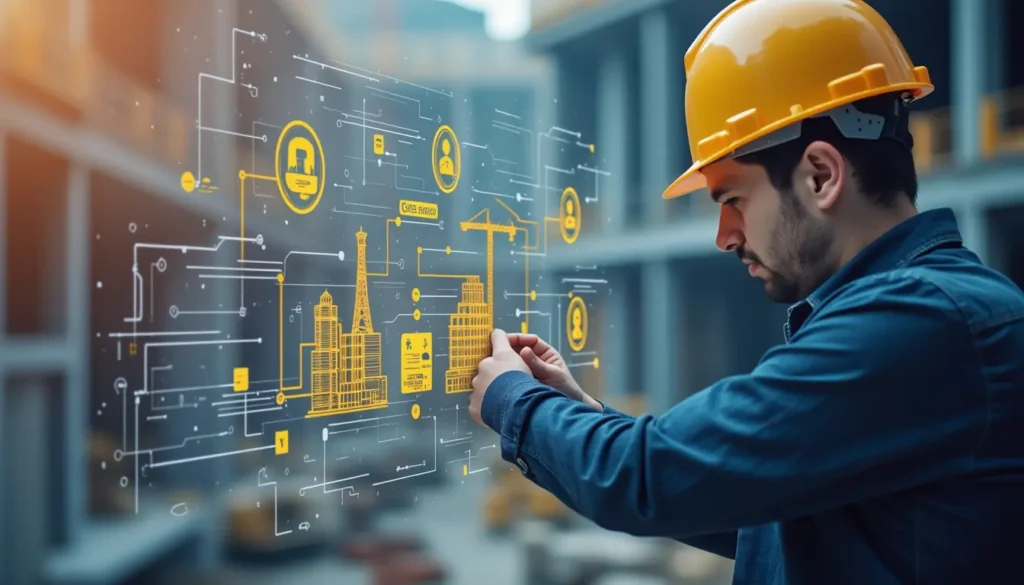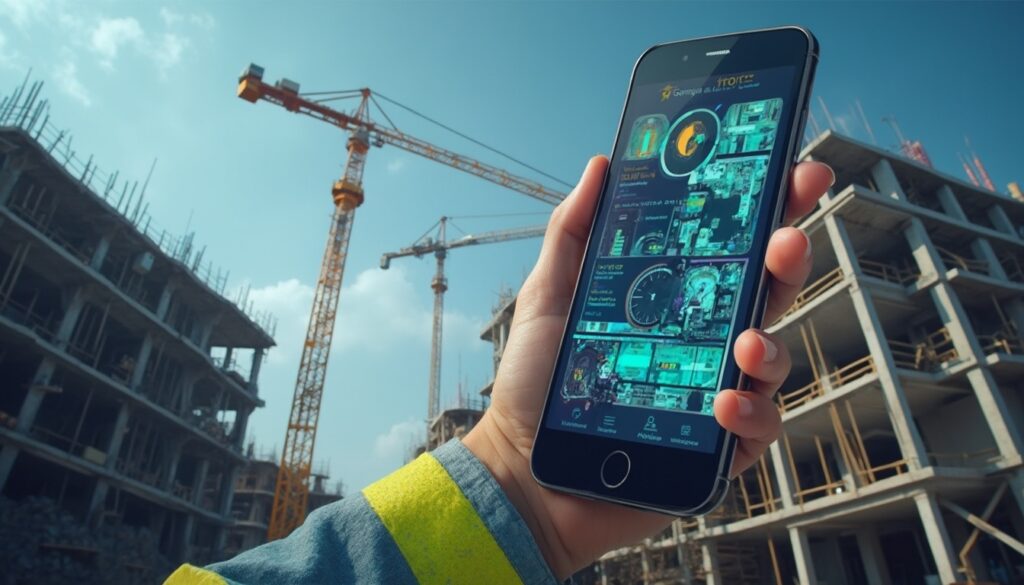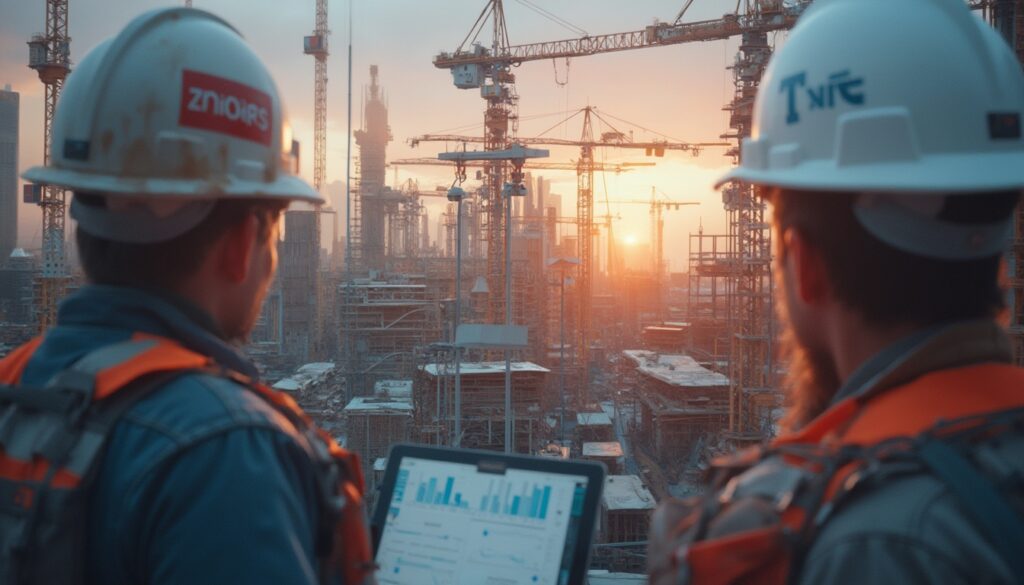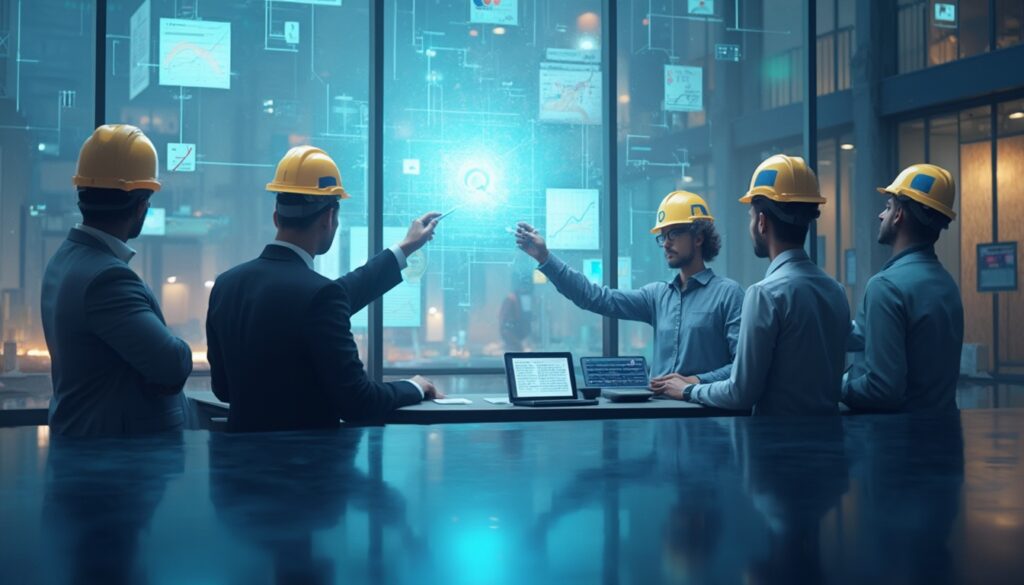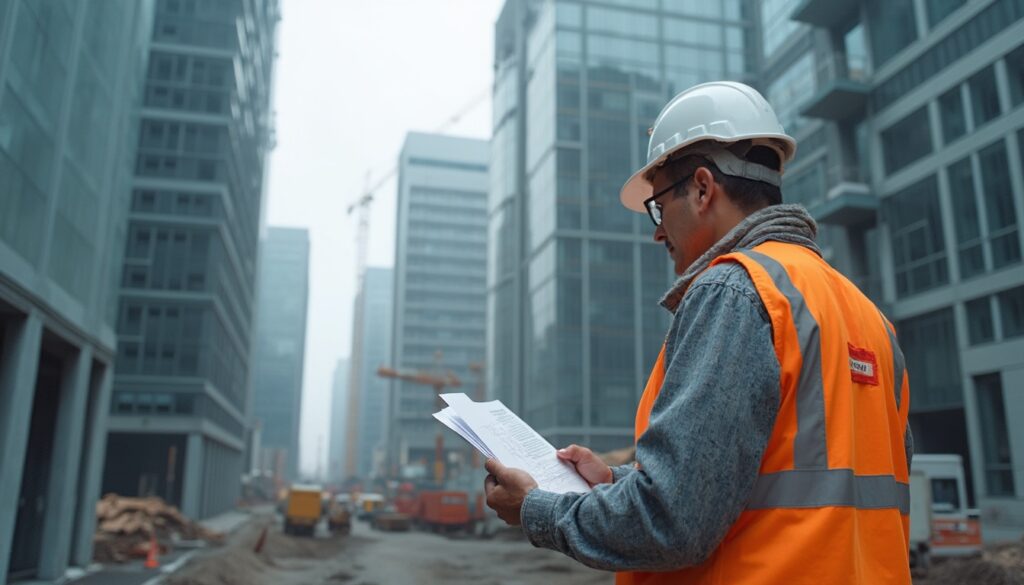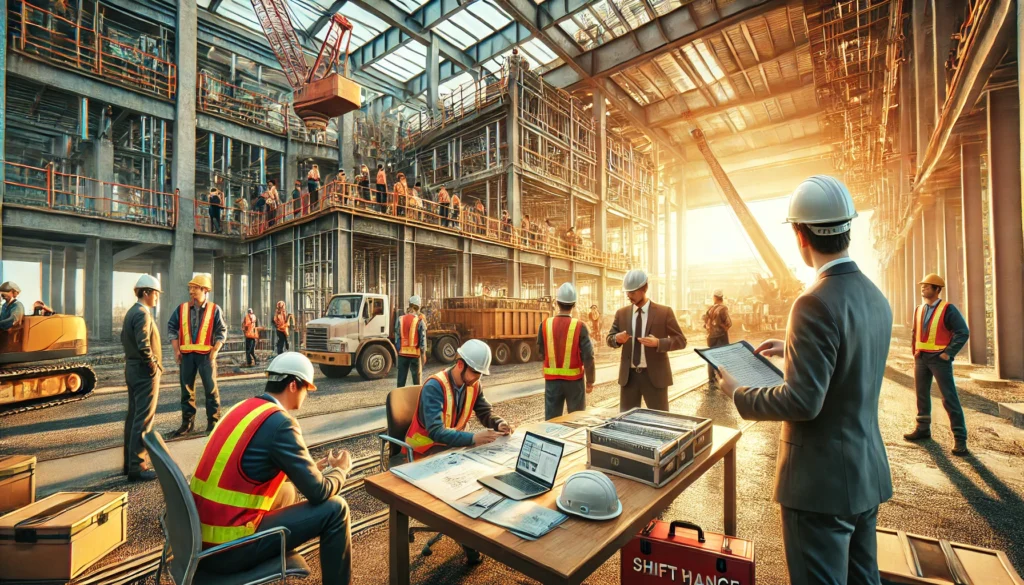The construction industry is at a turning point. Artificial Intelligence (AI) in construction has made its entrance and promises to fundamentally change the way we plan, build, and manage. From optimizing construction projects to improving safety on job sites – AI in construction has the potential to drive efficiency and innovation across the entire industry.
In this article, we take a look at the current applications of AI in construction. We explore the possible benefits that this technology integration can bring and also highlight the challenges and limitations that need to be considered. Finally, we draw a conclusion about whether AI in construction actually represents a revolution or if it is more of a temporary hype.
Current Applications
Artificial Intelligence has a significant impact on the construction industry. It optimizes processes, increases efficiency, and improves communication between on-site workers and the office. An example of this is Valoon, an innovative software that revolutionizes various aspects.
Planning and Design
AI-powered tools have a large influence on the planning and design phase of construction projects. They allow teams to effortlessly and straightforwardly share project documents with all stakeholders. With solutions like Valoon, team members always work with the latest plans and documents. This ensures that everyone is on the same page and minimizes misunderstandings.
Site Management
In the area of site management, AI in construction has a transformative impact. Modern software solutions enable the automation of construction reports, delay notifications, and other important logs with ease. This saves time and reduces the likelihood of errors in manual data entry. On-site workers can capture data directly via messenger apps, simplifying the process and increasing acceptance.
Safety and Risk Assessment
AI in construction also plays an important role in improving safety on job sites and in risk assessment. Advanced systems can detect potential hazards early and issue warnings. Additionally, they enable GDPR-compliant communication, which is of great importance in today’s world.
The integration of AI in construction brings numerous benefits. It simplifies workflows, secures information, and keeps all stakeholders informed. With features like real-time translation in up to 10 languages, AI in construction also overcomes language barriers on international job sites.
Potential Benefits of AI Integration
The integration of AI in construction has the potential to fundamentally change the industry and bring numerous benefits. Innovative solutions like Valoon demonstrate how AI in construction can optimize workflows and improve collaboration.
Efficiency Increase
AI-powered tools have a significant impact on the efficiency of construction projects. They enable teams to effortlessly and straightforwardly share project documents with all stakeholders. With solutions like Valoon, team members always work with the most up-to-date plans and documents. This ensures that everyone is on the same page and minimizes misunderstandings.
Another aspect of efficiency increase is the automation of construction reports, delay notifications, and other important logs. This saves time and reduces the likelihood of errors in manual data entry. On-site workers can capture data directly via messenger apps, simplifying the process and increasing acceptance.
Cost Reduction
The implementation of AI in construction has the potential to significantly reduce costs. By optimizing workflows and reducing manual tasks, companies can use resources more efficiently. The simple project registration via QR code or link, as well as the fact that no software training is required for stakeholders, further contribute to cost reduction.
Quality Improvement
AI technologies can lead to a significant improvement in quality in construction projects. By providing up-to-date documents and plans for all projects and participants, it ensures that everyone works with the latest information. This minimizes mistakes and misunderstandings that could lead to quality defects.
Additionally, AI-powered communication allows for better collaboration between on-site workers and the office. The ability for real-time translation in up to 10 languages overcomes language barriers on international job sites, thus contributing to improved communication and ultimately to higher quality work.
The integration of AI in construction thus offers diverse opportunities to increase efficiency, reduce costs, and improve quality. It is important that these technologies can be used user-friendly and without extensive training to achieve high acceptance among all stakeholders.
Challenges and Limitations
The integration of AI in construction brings numerous benefits, but it also presents some challenges for the industry. It is important to address these aspects to ensure the successful implementation of AI solutions.
Data Protection and Security
A central point in the introduction of AI technologies in construction is ensuring data protection and security. Companies must ensure that communication and data exchange are GDPR-compliant. This requires the implementation of robust security measures and control over who has access to which documents. Solutions like Valoon offer the ability to manage access to project documents while maintaining data protection.
Lack of Qualified Personnel
Another challenge is finding qualified personnel who can manage AI technologies. The construction industry faces the task of training employees and qualifying them to handle new technologies. However, there are also solutions that address this issue. For instance, Valoon allows for easy project registration via QR code or link, and no special software training is required for stakeholders. This significantly eases the introduction and acceptance of AI solutions.
High Implementation Costs
The implementation of AI technologies can involve high upfront investments. Companies must not only invest in the software itself but also in the necessary infrastructure and possibly in training for their employees. It is important for companies to weigh the long-term benefits and cost savings against the initial investment costs. Solutions that are ready to use quickly and do not require extensive training can help reduce implementation costs.
Despite these challenges, the integration of AI in construction offers significant opportunities to optimize workflows and increase efficiency. With the right approach and the choice of suitable solutions, companies can overcome these challenges and fully leverage the benefits of AI integration.
Conclusion
The integration of AI in construction has a significant impact on the industry. It leads to increased productivity, improved safety, and optimized communication among all stakeholders. Despite challenges such as data protection and initial investment costs, the benefits clearly outweigh the drawbacks. The technology simplifies workflows and improves collaboration.
Ultimately, AI in construction is not a temporary trend, but a real revolution. It has the potential to fundamentally change how we plan, build, and manage. To benefit from these advancements, it is essential to choose the right tools and use them effectively. Contact Valoon now and book a demo, to learn how AI in construction can advance your construction project.

